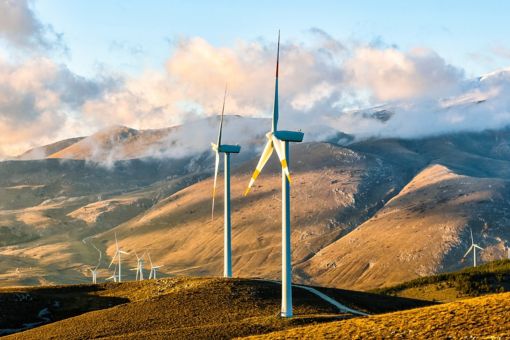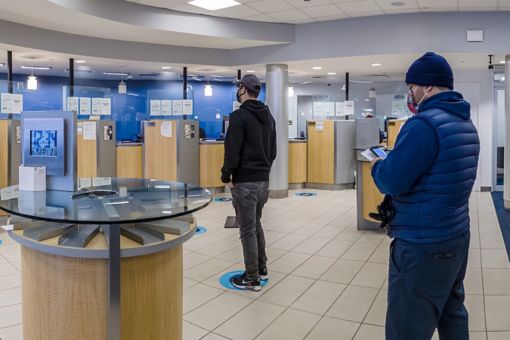Our professionals bring a wealth of experience and knowledge across a range of industries. The strength of our local and global network of experts helps companies tackle challenges, achieve their objectives, and embrace new opportunities. Our professionals do so by leveraging their deep sector expertise and combining it with an understanding of their clients’ business and specific needs.
Through a range of thought leadership and articles, we aim to share insights into the latest sector-specific trends, opportunities and challenges companies are facing. We also share best-practice and examples from the market to inspire and empower your thinking.
We have dedicated cross-functional sector teams focused on six key industries in Belgium: Banking, Energy & Natural Resources, Insurance, Life Sciences, Public Sector, and Real Estate, Building & Construction. For background information into these sectors, their key challenges and trends and the services we offer to help companies in these sectors, visit the respective link to the left. For sector-related insights, visit our key sector insights pages below:
Banking | Energy & Natural Resources | Insurance | Life Sciences | Public Sector | Real Estate, Building & Construction
In addition, our people work closely with clients in the following industries. You can find our latest insights and thought leaderships into these sectors by selecting the relevant sector below:
Automotive | Consumer & Retail | Industrial Manufacturing | Private Equity | Technology, Media, Telecom | Transport & Logistics
If you have any questions, please reach out to the relevant expert highlighted on each respective page or connect with us.
Our key sectors

Automotive
The global automotive market is diverse, ranging from original equipment manufacturers (OEMs) and component manufacturers, to dealerships and commercial vehicle manufacturers. KPMG’s global Automotive sector team offers a pro-active, forward-thinking service to our firms' clients. We help ensure that the industry’s expanding potential for growth is not missed, and that current issues and challenges can be overcome to maximize this exciting growth opportunity.

Consumer & Retail
Constant disruption continues to test the Consumer & Retail industry faster than many companies can keep pace, presenting new opportunities and challenging existing norms.
With a deep understanding of these companies’ most pressing issues and priorities, KPMG Belgium offers a full suite of forward-looking audit, tax, and advisory services, designed to navigate new complexities and the long term-shift in consumer behaviors.
Our most innovative solutions are specifically designed to support greater customer-centricity, including digital transformation, data analytics and security, supply chain management and growth, and new business models. Members of KPMG’s Consumer & Retail global network are dedicated to serving companies in the food and drink, consumer goods, luxury, and retail sectors.

Industrial Manufacturing
Disruption is everywhere, and that brings great opportunity for manufacturers who are willing to adapt. It also means great risk. How will your organization respond?
From new technologies and competitors, to new business models and customer expectations, your business is changing. This is a time where big ideas and bold action can solidify a company’s future – and the leaders of tomorrow are already taking steps to secure their hold on that future.
Whether you want to transform your enterprise, grow your business, manage your risks, improve your performance or enhance your customer relationships, KPMG can help.

Private Equity
From fundraising, investments and deals through to portfolio management, exit and realization, KPMG can assist you with the unique challenges that the private equity industry faces. We combine a global perspective and in-depth industry knowledge with customized support across an array of service offerings to be a meaningful, value-adding partner to our private equity clients and their portfolios.

Technology, Media, Telecommunications
Technology
From startups to Fortune 500 companies, technology companies worldwide aim to secure their market position through disruptive innovation. As new technologies are adopted around the world, it has become increasingly important for the leaders in this sector to understand the complexity and business transformation impact of rolling out these new products and services.
Media
The move to digital has had a dramatic impact on the media sector. The explosion of smartphones and tablets means that consumers have never had so many opportunities to access content. Media companies worldwide need to find new ways to adapt and change their business models to attract and engage the next generation of digital consumers to survive.
Telecommunications
The telecom sector is undergoing huge transformation. Driven by changing consumer behavior and new mobile technology, innovative and sustainable revenue opportunities need to be found – and quickly. Increasing competition from non-telecom providers, reduced network investments and the rise of digital media and mobile technology mean that telecom operators should radically change their business models and service offerings to survive.

Transport & Logistics
Our member firms advise both public and privately owned transport groups. Our capabilities cover: Aviation (incl. airlines & airports), Shipping & Ports, Rail & Bus, Logistics & Postal Service, Travel & Leisure.
We understand the financial and operational drivers of the transport sector and can assist our firms' clients in dealing with current and emerging issues, such as market consolidation, deregulation, public private partnerships, and financing.
Explore
Connect with us
- Find office locations kpmg.findOfficeLocations
- kpmg.emailUs
- Social media @ KPMG kpmg.socialMedia
















